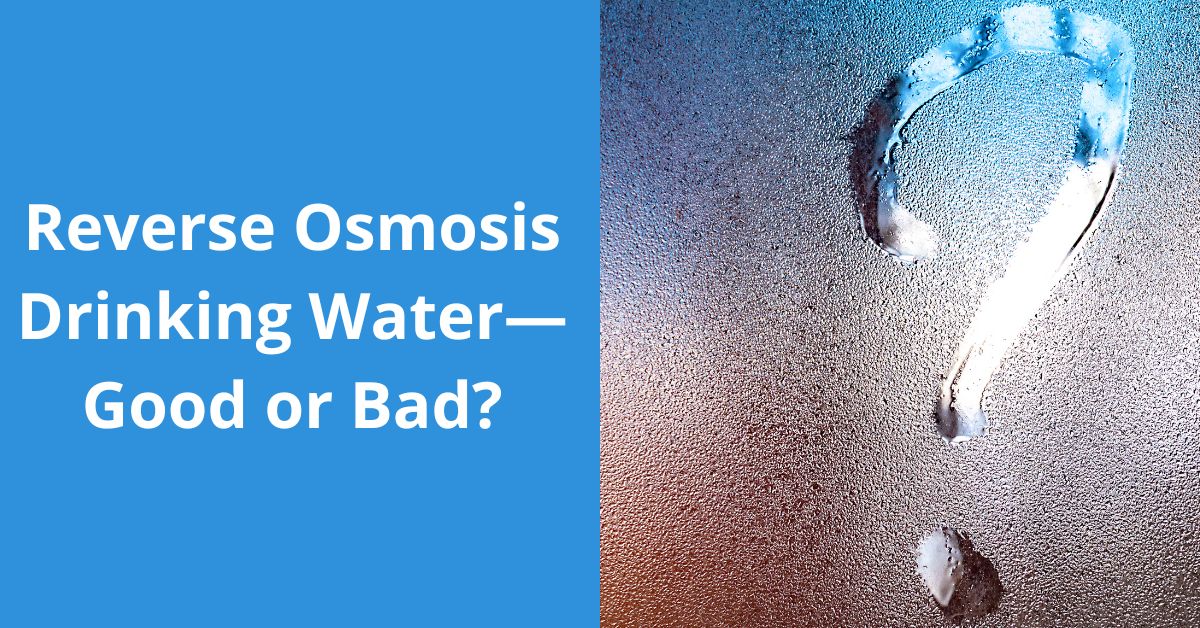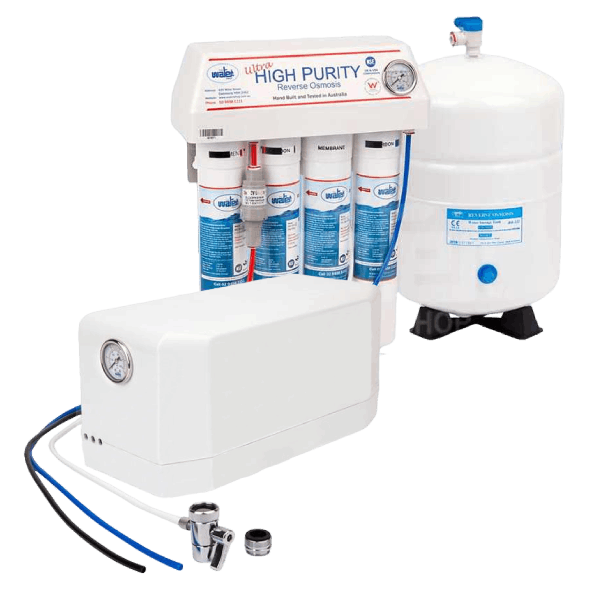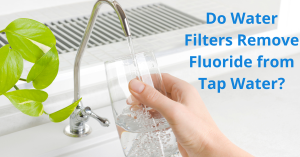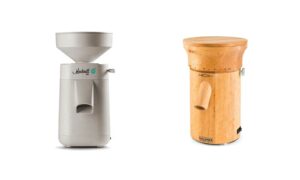
Reverse Osmosis Drinking Water—Good or Bad?
As someone who’s spent years in the water treatment industry, I’ve seen my fair share of debates about different purification methods. One topic that never fails to stir up discussion is reverse osmosis (RO) drinking water. Is it a modern miracle that provides the cleanest possible water, or does it strip away too much of the good stuff? Today, I’m diving deep into this question to help you understand the pros and cons of RO water.
Is it Healthy to Drink Reverse Osmosis Water?
This question is central to the debate surrounding reverse osmosis (RO) water treatment. The answer isn’t a simple yes or no but requires an understanding of the benefits and potential drawbacks of the RO process. Let’s break them down.
The Good: What RO Water Removes
First, let’s talk about the positives. Reverse osmosis is incredibly effective at removing a wide range of contaminants from water. Here’s a quick rundown of what a good RO system can filter out:
PFAS (Per- and polyfluoroalkyl substances): Researchers have linked these “forever chemicals” to various health issues. If you’re looking for effective PFAS water filters, reverse osmosis systems are top-notch.
Heavy metals: lead, arsenic, mercury—RO can remove these and other potentially harmful metals.
Microorganisms: Bacteria, viruses, and parasites don’t stand a chance against a good RO membrane.
Dissolved solids: This includes things like sodium, chloride, and other minerals that can affect water taste and quality.
Pesticides and herbicides: Many of these agricultural chemicals can be effectively filtered out by RO.
Pharmaceuticals: Trace amounts of medicines that find their way into water supplies are often removed by RO.
Whether you’re using a 4-stage reverse osmosis system, a 5-stage reverse osmosis system, or even a compact benchtop reverse osmosis water filter, you’re getting some serious purification power.
The Potential Drawbacks: What RO Water Lacks
Now, here’s where the debate comes in. While RO is excellent at removing the bad stuff, it also removes some of the beneficial stuff. Specifically:
Minerals: Calcium, magnesium, and other beneficial minerals are removed along with contaminants.
Slightly acidic pH: RO water tends to be slightly acidic, which some people worry could be detrimental to health if consumed long-term.
Flat taste: The lack of minerals can make RO water taste “flat” to some people.
See our blog post How to add minerals to RO water naturally for more information.
Balancing Act: Remineralisation and Alkaline Water
Here’s where it gets interesting. The design of many modern RO systems addresses these potential drawbacks. For example:
- Some 5-stage reverse osmosis systems include a remineralisation stage that adds beneficial minerals back into the water.
- You can find a benchtop reverse osmosis water filter 4 stage with alkaliser that not only purifies the water but also raises its pH to a more alkaline level.
Choosing the Right RO System for Your Home
If you’re considering an RO system for home use, you have several options:
Undersink reverse osmosis: These systems are installed under your kitchen sink and typically provide water through a separate faucet.
Countertop reverse osmosis water filter system: These sit on your counter and don’t require permanent installation.
Whole-house RO system: These larger systems filter water for your entire home.
The choice depends on your specific needs, available space, and budget. An undersink or whole-house system might be best for larger households, while a benchtop or countertop model could be perfect for apartments or small kitchens.
The Verdict: Is RO Water Good or Bad?
After years of studying this topic, here’s my take: Reverse osmosis water can be beneficial for you, especially if you live in an area with poor water quality or specific contaminant concerns. The ability of RO systems to remove harmful substances like PFAS, heavy metals, and microorganisms is truly impressive.
However, the potential loss of beneficial minerals is a valid concern. That’s why I generally recommend RO systems that include remineralisation or alkalisation stages. These systems give you the best of both worlds—ultra-pure water with the added benefits of essential minerals.
Making RO Water Work for You
If you decide to go with an RO system, here are some tips to ensure you’re getting the most benefit:
Choose the right system: Consider reverse osmosis system with remineralisation if you’re concerned about mineral content.
Maintain your system: Regular maintenance ensures that your RO system continues to function effectively.
Remineralise if needed: If your system doesn’t include remineralisation, consider adding mineral drops to your water or ensuring you get minerals from other dietary sources.
Stay hydrated: RO water is very pure, which may help you drink more water throughout the day.
Use for cooking: The purity of RO water can enhance the quality in your cooking as foods can’t absorb any contaminants from the purified water.
Beyond Drinking: Other Benefits of RO Water
It’s worth noting that the benefits of RO water extend beyond just drinking. Here are a few other ways you might use your RO system:
Cooking: RO water can make your coffee and tea taste better. When preparing staples like pasta and rice, using RO water ensures that these absorbent foods don’t take in any contaminants during cooking, resulting in purer, better-tasting dishes.
Ice cubes: Clear, great-tasting ice cubes for your beverages.
Aquariums: RO systems provide the pure water necessary for many fish species to thrive.
Plants: Some plants prefer the purity of RO water, though you might need to add nutrients for others.
Cleaning: When used for cleaning, RO water leaves fewer spots on glasses and mirrors.
The Bottom Line
So, is reverse osmosis drinking water good or bad? In my professional opinion, when used correctly, it’s predominantly good. The key is to choose a system that fits your needs and be aware of both its strengths and limitations.
RO technology provides a powerful tool for ensuring clean, safe drinking water. Whether you’re concerned about specific contaminants like PFAS or you simply want the peace of mind that comes with knowing your water is as pure as possible, a reverse osmosis system can be an excellent choice.




